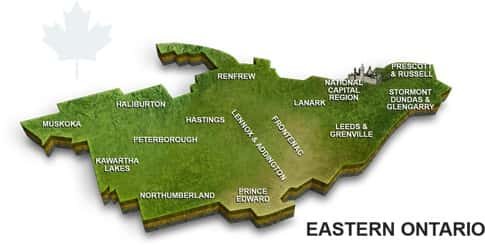Mark Buckshon
I’m preparing for a visit to San Jose California for an international summit of a multi-billion dollar company that didn’t exist two decades ago, yet has reshaped the way most of us have done business in fundamental ways.
The business, of course, is Google. This incredible success story has, of course, had dramatic impact on businesses like ours, which depend primarily on advertising revenue, but the impact of its truly effective search engine and other innovations (ranging from Google Maps to the Android smart-phone operating system) has touched all of our lives.
Google is purchasing my plane ticket and paying my hotel and food costs for the three-day shindig. Specific content during the event is subject to non-disclosure agreement rules, but I certainly expect to learn some key things about trends, technology, and innovation (and I sense Google’s management has set this event up for its staff’s own brain-picking purposes.)
The paradox is I’m neither a major client nor supplier of Google. My AdWords account is dormant, and while I use an Android-based phone, I can’t imagine Google makes much if any money out of that. On the supplier side, I have an AdSense (Google’s third party-ad serving program) account, which places some advertising on our websites. But the monthly revenue from this source is about $50.00 – hardly enough to make a difference in our lives.
Then, how the heck did I make the short list for an event which presumably has a seven-figure budget?
Volunteerism. I’ve been helpful to others on Google’s English-language AdSense help forum, enough that I’m one of about a dozen “Top Contributors” (moderators). (Google is so big that there help forums for several other languages and topics, resulting in about 500 Top Contributors overall.)
Obviously, I didn’t volunteer with the expectation of this travel perk (in fact, it didn’t exist when I started out), and if I had gone into the process looking for “something for me,” the whole thing would have failed. But I’ve seen countless times how a generous spirit – and an attitude of not seeking reward – often results in surprising benefits and advantages.
This is why I encourage my company’s own employees to spend at least a quarter of their time on community service and voluntary activities. These can relate to associations or charities. Although we haven’t quantified everything exactly, I’m noticing a direct correlation between the number of selfless voluntary hours spent on good deeds and actual sales revenue. My company’s weakest sales representatives, for example, think they are productive in making calls and trying to find business. Our strongest reps find business almost without looking for it, by doing good.
I’ve also discovered another intriguing anomaly. Sometimes seemingly irrational use of time on voluntary pursuits – especially if you spend enough time that you truly become an authority and leader within the specialized community – can lead to surprising rewards that transcend the voluntary hours you spend.
There are probably good scientific and marketing-value reasons for this succes, which leads to an intriguing question and challenge. If there’s something you really want to do and enjoy, even though you cannot find a justified business-reason for it, and it will benefit, help and support a relevant community, should you proceed, regardless of the time required (and to some extent, cost)?
The answer, I think, is “yes”. Have fun. Be generous. Do what you love and help others within your interests, passions and charitable spirit. Your business will thrive.
Mark Buckshon is president of the Construction News and Report Group of Companies. He writes a daily blog at www.constructionmarketingideas.com and can be reached by email at buckshon@cnrgp.com or phone at (888) 432-3555 ext 224.







